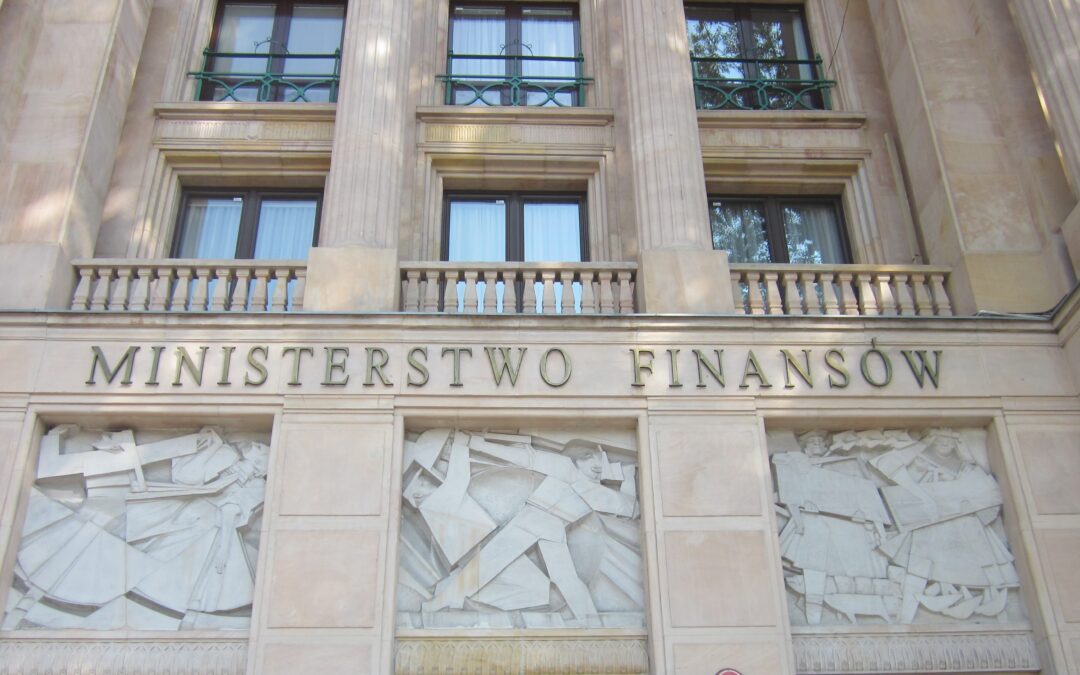Poland’s finance ministry estimates that the three largest items in a recently announced economic stimulus package will cost public finances almost 27 billion zloty (€6 billion) annually.
The so-called “Polish Deal”, which was unveiled by the ruling coalition last month, features an overhaul of the tax system that will lessen the burden on 18 million lower-paid Poles but increase rates for top-earners and some businesses.
A key change will be raising the tax-free income allowance to 30,000 zloty (€6,720), up from the current threshold of 3,091 zloty (€690), for most taxpayers. The threshold for entering the highest income tax bracket of 32% will also be raised to 120,000 zloty (€26,900).
According to deputy finance minister Piotr Patkowski, this change alone will shrink tax income by 22 billion zloty (€4.9 billion) a year. He told Polskie Radio that a “3 billion zloty compensatory subsidy” would also be paid to local governments.
Missing from the estimates, however, was information on how the tax cuts would be offset by a planned increase in the social security and health insurance contributions of high earners.
Moreover, Patkowski estimated that additional child benefits of up to 12,000 zloty (€2,690) offered to parents for care of their second and each subsequent child aged between 12 and 36 months will come at an annual cost of 2 billion zloty (€448 million).
A proposed subsidy to boost home ownership – which includes state help in securing and paying off mortgages, with amounts increasing based on the number of children in the family – will amount to a further 2.5 billion zloty (€560 million), according to “preliminary estimates,” said Patkowski.
The minister noted that the Polish Deal would also include an array of “smaller projects” financed out of the public coffers. “However, these are the three largest projects,” he said.
Following up on the Polish Deal announcement on 16 May, last week the government also unveiled planned tax breaks for small and micro-sized companies, such as beauty salons, hairdressers or car mechanics.
These, according to finance minister Tadeusz Kościński, would leave an additional 4 billion zloty (€900 million) “in the pockets” of such businesses. He also explained that new allowances would support businesses listing on the stock exchange.
The government also plans to offer tax breaks for investors, including venture capital funds. “Thanks to this, we will stop losing capital to other countries where such preferential treatment already exists,” he said. The state will also encourage businesses to invest in ailing companies and expand sales to new markets.
Proces konsolidacji, czy rozwój firmy często nie jest możliwy bez odpowiedniego finansowania i know-how. Dostarczają je fundusze Venture Capital.
Inwestor, który chce pomnożyć swoje środki za jego pośrednictwem będzie mógł skorzystać z ulg. #PolskiŁad
➡️ https://t.co/mqFHrCMHYC pic.twitter.com/hsqaCKzXlX— Ministerstwo Finansów (@MF_GOV_PL) June 4, 2021
Last week, the prime minister, Mateusz Morawiecki, listed the key projects to be prioritised in the coming 100 days, which include changes to the tax-free income allowance and exempting lower pensions from tax.
The prioritised changes will also include the subsidies for homebuyers, additional funds for education and agriculture, as well as ramping up healthcare spending – currently one the lowest levels of public funding in the EU – from 4% of GDP to 7% by 2027.
The Polish Deal, which has been presented as a means of recovery from the pandemic, is also seen as an opportunity for the government to set out a programme ahead of the next parliamentary elections.
10 projektów #PolskiŁad na 100 dni
1️⃣ 30 tys. #KwotaWolna
2️⃣ #EmeryturaBezPodatku
3️⃣ #BezLimituDoSpecjalisty
4️⃣ #7procNaZdrowie
5️⃣ #MieszkanieBezWkładu
6️⃣ #DomBezFormalności
7️⃣ #Rodzina12000plus
8️⃣ #AmbitneInwestycje
9️⃣ #PaliwoDlaRolnika #OdPolaDoStołu
🔟 #MałeCentraNaukiKopernik pic.twitter.com/Bkrf4sqvUg— Kancelaria Premiera (@PremierRP) June 2, 2021
Main image credit: Adam-dalekie-pole/Wikimedia Commons (under CC BY-SA 3.0)

Maria Wilczek is deputy editor of Notes from Poland. She is a regular writer for The Times, The Economist and Al Jazeera English, and has also featured in Foreign Policy, Politico Europe, The Spectator and Gazeta Wyborcza.




















